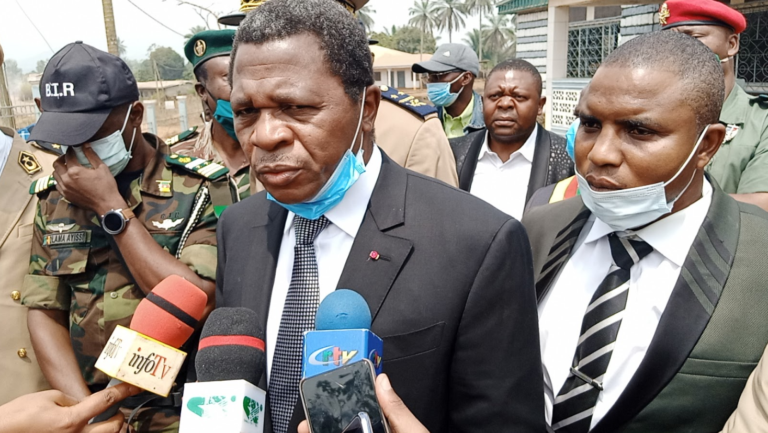Yaounde – In a daring move to enforce religious regulation, Cameroon’s Minister of Territorial Administration, Paul Atanga Nji, has ordered the closure of all unregistered churches across the nation. He said of the thousands of churches operating in Cameroon, only 47 have official registration.
Atanga Nji made the announcement in December, declaring that unregistered churches must shut their doors immediately. “Any church that is not registered should close down. I am advising them to close down before I get to them,” he warned.
Since 2010, Cameroon has not approved any new church registrations, leaving many congregations in limbo. According to existing laws, establishing a church requires a presidential decree based on a recommendation from the Minister of Territorial Administration. However, despite numerous applications, no approvals have been granted in over a decade.
This stalemate has led to widespread noncompliance, with thousands of churches continuing to operate without legal authorization. Atanga Nji’s firm declaration that “only President Paul Biya can authorize the creation of a church in Cameroon” underscores the centralized control over religious institutions.

The minister’s announcement marks the end of what he described as “administrative tolerance” for unregistered churches. “Break time for administrative tolerance is over,” he declared, signaling a crackdown on churches operating outside the law.
However, critics argue that the government bears significant responsibility for this situation. Many unregistered churches have submitted applications that remain pending, while Atanga Nji has not disclosed how many requests are awaiting review by his office.
Observers point to inefficiencies within the Ministry of Territorial Administration, noting that its failure to process applications has contributed to the proliferation of unauthorized churches.
While the government’s move aims to regulate religious institutions, it comes amid growing public skepticism toward some churches accused of exploiting their followers. Critics argue that these organizations divert attention from pressing societal issues such as poverty, unemployment, and inadequate public services.
Despite Atanga Nji’s strong rhetoric, no unregistered church closures have been reported thus far. The situation remains a contentious issue, with many questioning whether the government’s actions will lead to meaningful reform or further exacerbate tensions between the state and religious communities.

